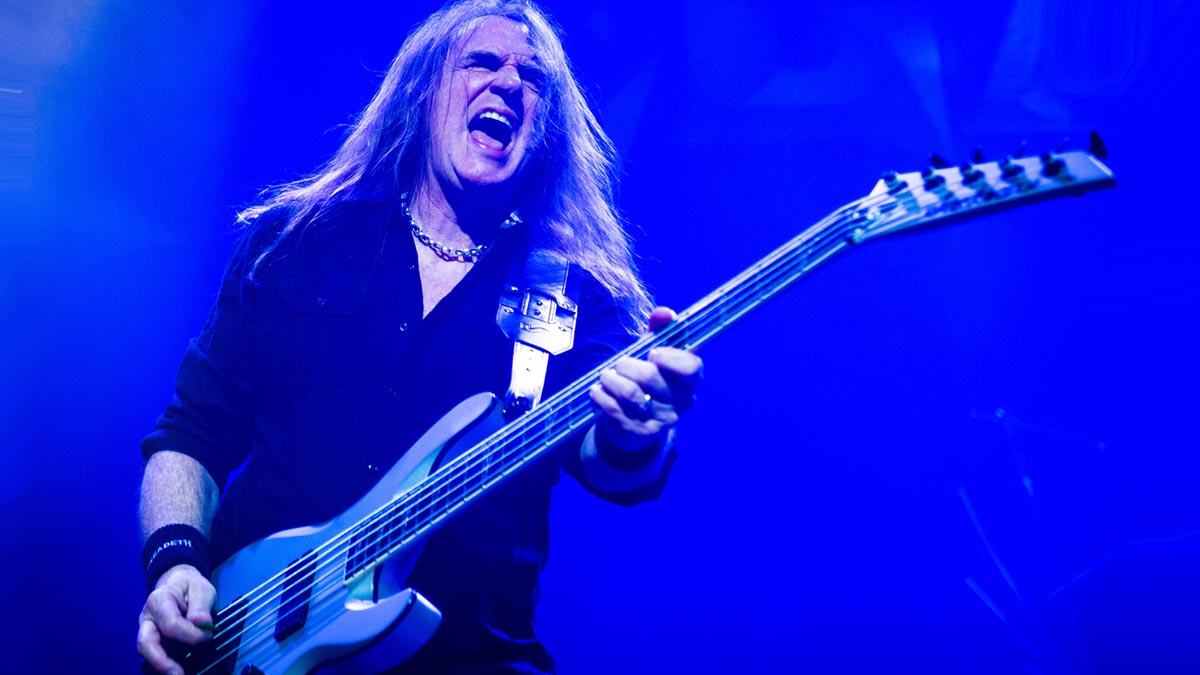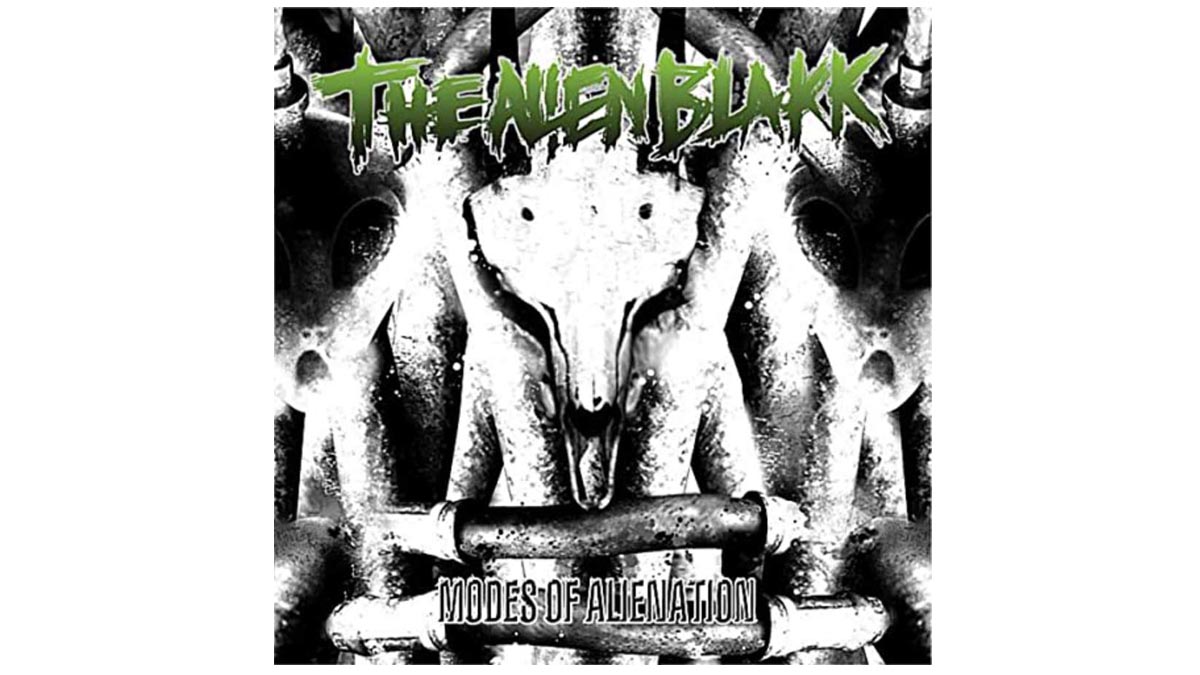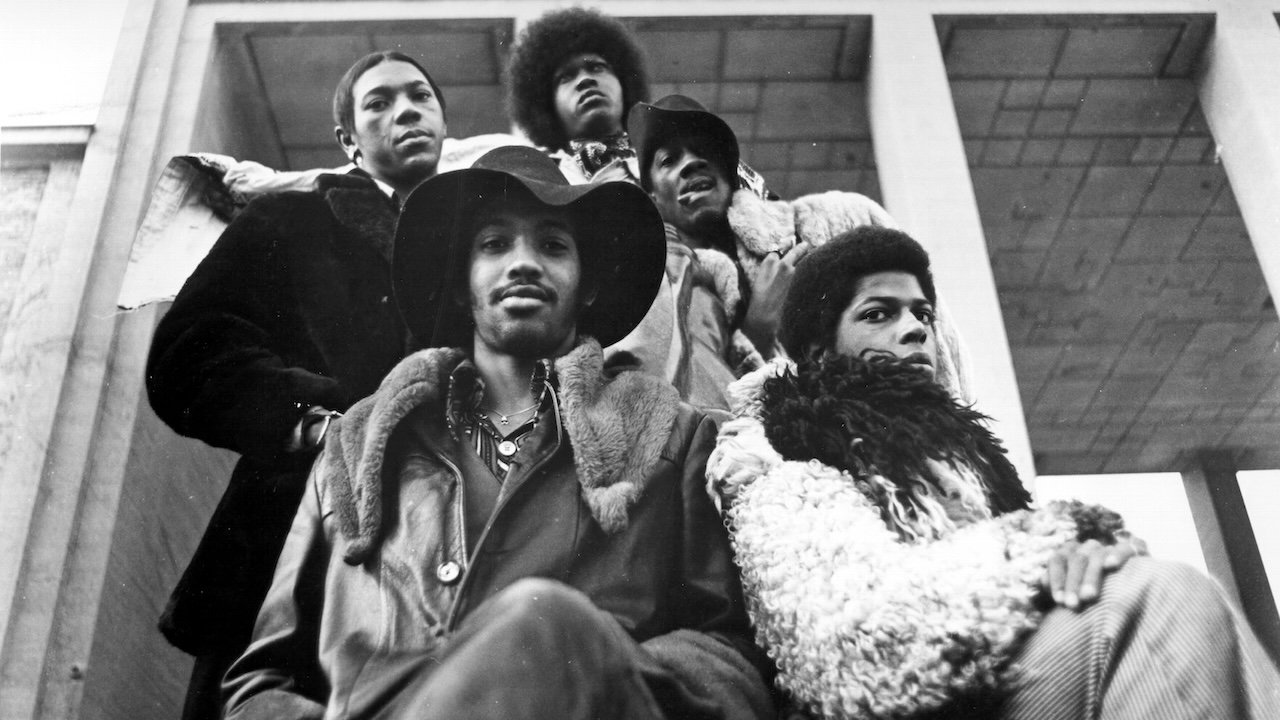Megadeth's David Ellefson ranks the best (and worst) albums from his career
From thrash classics to solo projects and high-profile collaborations, the Jackson-toting bass supremo looks back at his recording history

All the latest guitar news, interviews, lessons, reviews, deals and more, direct to your inbox!
You are now subscribed
Your newsletter sign-up was successful
It’s 36 years and counting since David Ellefson joined Megadeth, and despite an eight-year stint outside the band, when he worked in A&R for Peavey from 2002 to 2010, he’s never really stopped recording and touring.
In the last decade, he’s established several businesses outside Megadeth under the banner of Ellefson Music Productions, which today runs to a record label, a booking agency, solo albums, books, movie production, and a coffee brand, not to mention solo bass clinics and collaborations with many other musicians.
His newest venture is a solo album called No Cover, for which he invited a host of rock and metal musos to record songs in and out of the rock and metal canon.
Ellefson is best known for playing splendidly pointy signature Jackson bass guitars, for which US-made and affordable import models have been available since he rejoined Megadeth in 2010.
You’ll also see him playing the Kelly Bird model which he designed for Jackson, and you may have seen our recent review of two more Ellefson basses, the X Series CBXM four- and five-string models. He also uses Hartke heads and cabs, SIT strings and GruvGear straps.
With his extensive catalog, he’s a perfect candidate for BP’s Star Bass treatment...
Must-Have Album: Rust In Peace (Megadeth, 1990)
“The song Holy Wars... The Punishment Due summarizes everything that Megadeth was about in 1990, and probably still does today – lyrically and musically. The engineer at Amigo Studios who helped us demo the first three tracks was Garth Richardson, and he came up with the half-time bassline in the middle section. That was clever, because the song doesn’t leave a lot of room for anything other than just to buckle up and play along with the guitar.
All the latest guitar news, interviews, lessons, reviews, deals and more, direct to your inbox!
“One of my other favorite basslines on the album is in Five Magics, and for me, the crowning moment as a bass player is Dawn Patrol. When we were in the studio, our producer Mike Clink kept asking us if we had another song to add to the record, and I had this bassline that I put down with Nick [Menza] on drums.
“I borrowed an eight-string Yamaha bass from Dio’s bassist Jimmy Bain to write Dawn Patrol, and that’s where I first learned that an instrument can have a song in it. As soon as I picked that bass up, the riff fell out. I would never have come up with that riff on any other instrument. Rust In Peace definitely still stands up today. Megadeth’s fans tend to love it, for good reason.”
Worthy Contender: No Cover (Ellefson, 2020)
“This album starts with my earliest childhood recollections of rock music, with the Sweet, Nazareth, Bachman Turner Overdrive, and then it goes through Kiss and my later influences. When we were choosing songs, we chose the ones that impacted me and Thom [Hazaert, vocals], and we never discussed doing the hits. Instead, we chose the songs that really had an impact on us.
“It was a privilege to really dig deep into the character of the playing of so many different bass players – and one who stood out was Steve Priest of the Sweet, who passed away right as we were starting to record. We wanted to honor him with our recording, and the same goes for the Fastway song we recorded, Say What You Will.
“That song was very popular in 1983 when I moved to Los Angeles, met Dave [Mustaine] and we started Megadeth. I know Pete Way didn’t actually record bass on it, but it has a very ‘Way’ feel about it. And then we did Motörhead’s Love Me Like A Reptile, which I used to play as a teenager: I noticed that Lemmy’s strumming style is similar to how you strum an acoustic guitar, which was unexpected. I used a Modulus Quantum five-string for a lot of the songs, recorded into Logic through an IK Multimedia Axe I/O interface.”
Cool Grooves: Altitudes & Attitude (Get It Out, 2019)
“As Frank Bello of Anthrax and I were on tour with the Big Four in 2010 and 2011, we were doing bass clinics, and at one event in London I leaned over to him on stage and said, ‘Why don’t we write some original songs to play along with?’ That started the train moving forward towards a joint project, which started with a song called Here Again, which I wrote on guitar so we could play along with it.
“We used it at a Bass Player Live event in Los Angeles. The songs that Frank sent to me were very clever, singer-songwriter tracks that inspired me to play in a completely different way to my usual style – this time, I was really inspired by Colin Moulding of XTC and Graham Maby, the bassist in Joe Jackson’s band, who played with lots of melodies.
“I remember seeing Joe Jackson on a TV show when I was a teenager, and Graham’s amazing, picked basslines really helped to carry the songs alongside the vocals. I even took some high octave slides from Adam Clayton of U2, so the influences on bass were completely different this time.
“ESP brought an eight-string bass down the studio – and when it arrived, I immediately called them up and bought it over the phone. That bass is the signature sound for the Altitudes & Attitude album.”
Wild Card: Prophecy (Soulfly, 2004)
“In 2004, I was working for Peavey and experimenting with a project called F5, and I got the call from Gloria Cavalera that Soulfly wanted me to play bass on half the songs for their new album, Prophecy. The other half were played by Soulfly’s bassist Bobby Burns.
“I knew Gloria and Max [Cavalera, Soulfly founder] a little bit, and I had heard some of Soulfly’s music, so I went to their rehearsal studio and we jammed. What was great was that Max is so relaxed about my bass parts. I’d say ‘What do you want me to do in this part, Max?’, and he’d say, ‘Hey, you’re David Ellefson – you do what you think is right!’
I’d say ‘What do you want me to do in this part, Max?’, and he’d say, ‘Hey, you’re David Ellefson – you do what you think is right!’
“It was very casual, and actually the opposite of what I’d been used to with Megadeth, where all the notes that I played were very nuanced and aligned with each other. I did a couple of weeks of touring with them and I was also in a video, which we filmed up in the desert in Utah. It was such a pleasure to work with them on that album.
“That whole decade was all about me playing with young musicians who used all these crazy tunings, which were completely different to the traditional E tuning that we usually used in Megadeth, and all these experiences really opened my eyes to different ways of doing music.”
Avoid At All Costs: Modes Of Alienation (The Alien Blakk, 2004)

“The Alien Blakk is a project that is fronted and composed by a guitarist called Josh Podolsky. I met Josh around 2004; he was the guitarist for the rapper Coolio, who performed at the Peavey booth at NAMM.
“Josh was insistent that I play on his record, which was being recorded right at the time I was going into the studio to play with Soulfly, and at the same time I had just settled a pretty highly publicized breakup with Dave Mustaine; in fact, literally that same afternoon I had just run into Dave at Starbucks in Scottsdale, Arizona, where I live. Between those three bands, that was quite a week.
Music was a common path for the both of us, which ultimately is a good reason to do anything. I wish Josh all the best
“Modes Of Alienation was progressive rock, which I was familiar with, but it didn’t exactly reek of hit singles and I was very busy at the time, so to me, it was a record that made sense to Josh, but it didn’t make too much sense to me.
“With no disrespect intended to him, I guess I’m always a bit of a bleeding heart when it comes to musicians who are trying to get things going, and he was out of Coolio and I was out of Megadeth, so there was a little bit of brotherhood between us in that sense.
“Still, music was a common path for the both of us, which ultimately is a good reason to do anything. I wish Josh all the best with his music.”
Bass Player is the world’s most comprehensive, trusted and insightful bass publication for passionate bassists and active musicians of all ages. Whatever your ability, BP has the interviews, reviews and lessons that will make you a better bass player. We go behind the scenes with bass manufacturers, ask a stellar crew of bass players for their advice, and bring you insights into pretty much every style of bass playing that exists, from reggae to jazz to metal and beyond. The gear we review ranges from the affordable to the upmarket and we maximise the opportunity to evolve our playing with the best teachers on the planet.

